Texas Trade Contractor OSHA & Safety Compliance Resource Guide
A Practical Guide to Safety, Licensing, and Risk Management Compliance for Texas Businesses

Building Safer Texas Job Sites
Texas contractors operate in some of the most dynamic and demanding environments in the country — from urban high-rises in Dallas to refinery work near Houston and heavy infrastructure projects across Central Texas.
At Eastman Insurance Solutions (EIS Texas), we help construction and trade business owners, safety directors, and foremen understand and meet the OSHA, state licensing, and environmental safety requirements that protect their people and profits.
Compliance isn’t paperwork — it’s protection.
It safeguards your crews, your brand, and your financial future.
Explore Your Industry Compliance Portal
Below are the dedicated compliance resources curated by EIS Texas. Each section outlines federal and state-specific requirements, plus actionable risk management practices for your industry.
1. OSHA Overview for Texas Contractors
Texas does not have its own state OSHA plan, meaning private employers fall under Federal OSHA jurisdiction (29 CFR 1910 & 1926). These are the standards that govern nearly all construction and trade operations statewide.
Key Federal Standards That Apply to Contractors
-
29 CFR 1926 Subpart K – Electrical Safety in Construction
-
29 CFR 1926.501 – Fall Protection Requirements
-
29 CFR 1910.147 – Control of Hazardous Energy (Lockout/Tagout)
-
29 CFR 1926.1153 – Respirable Crystalline Silica Exposure
-
29 CFR 1926.21 – Safety Training and Education
Official Source: OSHA Construction Standards – 29 CFR 1926
2. Texas Licensing & Regulatory Framework
While OSHA governs safety, Texas adds licensing and compliance oversight through multiple agencies:
| Trade | Regulating Body | Key Resource |
|---|---|---|
| Electricians | Texas Department of Licensing & Regulation (TDLR) | Licensing, CEUs, compliance, and enforcement. |
| Plumbers | Texas State Board of Plumbing Examiners (TSBPE) | Licensing, apprentice tracking, and safety requirements. |
| HVAC Contractors | TDLR Air Conditioning & Refrigeration Division | Mechanical licensing, refrigerant handling, record-keeping. |
| Asphalt & Site Work | Texas Commission on Environmental Quality (TCEQ) | Air quality, emissions, and environmental permitting. |
| General Construction Safety | Texas Department of Insurance – OSHCON Program | Free onsite safety consultation and training assistance. |
3. Key Risk Areas & Compliance Priorities
A. Electrical Work (Electricians, HVAC, Specialty)
-
Lockout/Tagout during service and repair (29 CFR 1910.333).
-
Grounding and circuit verification.
-
PPE: arc-rated gear, gloves, eye protection.
-
NFPA 70E compliance for electrical safety programs.
B. Fall Protection & Job-Site Safety
-
Required for any work above 6 feet.
-
Guardrails, harnesses, lanyards, anchorage systems, and inspection logs.
-
Scaffold and ladder training must be documented.
C. Silica & Dust Control
-
Cutting, grinding, or drilling concrete triggers silica compliance (29 CFR 1926.1153).
-
Written exposure control plan required for all construction sites.
-
Medical surveillance if employees are exposed over permissible limits.
D. Heat Stress & Environmental Hazards
-
Texas climate brings extreme heat — employers must provide rest, shade, and hydration under OSHA’s General Duty Clause.
-
Asphalt, roofing, and paving crews must implement heat-illness prevention programs.
E. Vehicle & Fleet Operations
-
OSHA + DOT overlap: daily inspections, driver qualification files, maintenance records, and load-securement documentation.
-
Fleet safety ties directly to Workers Compensation and Commercial Auto loss ratios.
4. Written Safety Program Essentials
Every Texas contractor should maintain a job-specific written safety plan that includes:
-
OSHA-required policies (LOTO, fall protection, silica, hazard communication).
-
Daily or weekly toolbox talk logs.
-
Training matrix by role or job type.
-
Incident reporting and near-miss documentation.
-
Emergency and first-aid procedures.
-
Equipment and PPE inspection logs.
Resource: OSHA Safety and Health Program Management Guidelines
5. Environmental & Site Compliance for Asphalt and Concrete Contractors
Contractors engaged in paving or concrete operations are also subject to TCEQ environmental oversight:
-
Air Permitting: Hot mix asphalt plants must obtain a permit by rule (PBR).
-
Stormwater Pollution Prevention Plan (SWPPP): Required for sites disturbing over one acre.
-
Spill Prevention, Control, and Countermeasure (SPCC): Mandated for fuel and oil storage.
References:
6. Practical Texas Contractor Compliance Checklist
Licensing & Documentation
- Verify all professional licenses with TDLR or TSBPE.
- Maintain proof of insurance (liability, auto, and workers comp).
- Post OSHA 300A summary annually.
Job-Site Safety
- Conduct and document daily hazard assessments.
- Maintain PPE inventory and inspection logs.
- Train workers on fall protection, silica, and confined spaces.
Fleet & Equipment
- Maintain DOT-compliant vehicle logs and inspection reports.
- Provide defensive-driving and mobile equipment training.
Environmental
- Implement stormwater and spill-prevention plans if applicable.
- Maintain chemical storage and disposal documentation.
7. Integration with EIS Texas Risk Management
Compliance isn’t just regulation — it’s a core pillar of risk management.
EIS Texas works with contractor clients to:
- Develop and document OSHA-compliant safety programs.
- Analyze loss trends and fleet data to identify cost drivers.
- Conduct experience modification (X-Mod) improvement reviews.
- Implement safety training aligned with carrier requirements.
The result: fewer claims, improved renewals, and a stronger safety culture across every job site.
Explore Risk Management Integration →
Service Area – Supporting Contractors Across Texas
We proudly assist contractors throughout Texas, including:
Dallas–Fort Worth · Houston · Austin · San Antonio · East Texas · Central Texas · Gulf Coast · West Texas
Each region has unique operational challenges — and EIS Texas understands how to navigate them safely and strategically.
